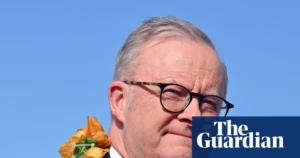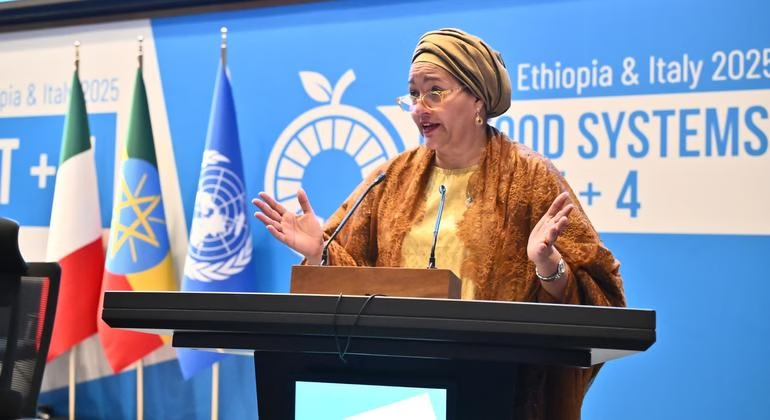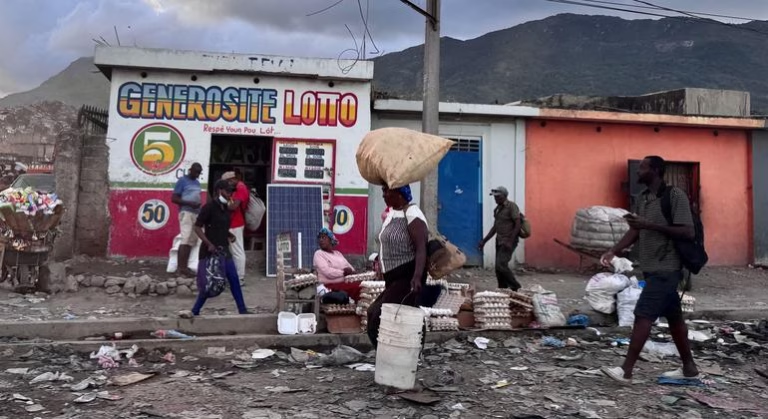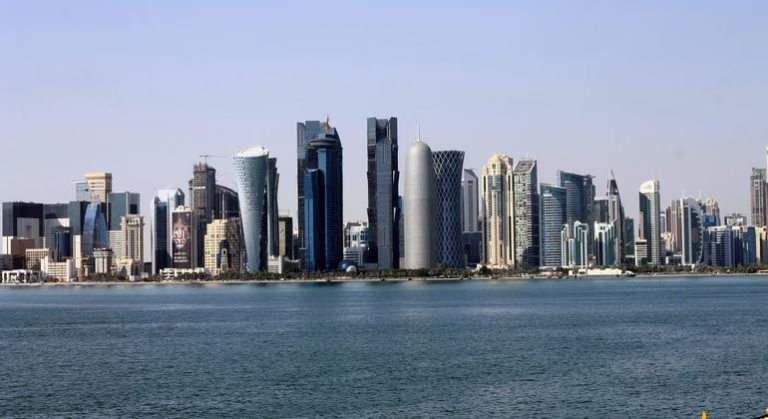Despite this momentum, Ms. Mohammed cautioned that with only five years remaining until 2030, “hunger and malnutrition continue, climate shocks, conflict, debt, and inequality are intensifying the vulnerabilities in our systems.”
“Food systems are often viewed as part of the problem. In reality, they can be among the most powerful solutions for the well-being of people, the planet, and for fostering peace and prosperity.”
Transformation Through Global Cooperation
Launched in 2021 “amidst a global pandemic,” the UN Food Systems Summit aimed to ignite action towards more equitable, resilient, and sustainable food systems internationally.
The 2025 Stocktake gathered over 3,000 participants from various sectors to assess progress and recommit to the cause.
As of now, more than 130 nations have developed National Pathways for food system transformation, with support from UN agencies and development partners.
Advancing the UNFSS Process
In her address, Ms. Mohammed highlighted several areas of progress and the necessity for urgent, coordinated action:
- Climate Solutions through Food and Agriculture: “Food and agriculture are now part of the climate plans of 168 countries,” she noted, emphasizing their potential to reduce emissions and enhance resilience.
- School Meals as Strategic Investment: Over 170 countries are implementing school meal programs, which represent an investment in both children and farmers, ensuring a nourished future.
- Innovation in Urban Centers: Cities are at the forefront of reducing food waste and strengthening local supply chains, showcasing ground-level innovation.
- Essence of Inclusion: Ms. Mohammed stressed the importance of including youth, Indigenous Peoples, women, and marginalized communities, praising the powerful commitments made to transform food systems for everyone’s benefit.
- Aligning Financing with Ambition: She urged donors and development banks to align their investments with national pathways.
“As we conclude this Stocktake, we must recognize that we are united amidst challenges that challenge our shared values and the planet’s future sustainability, underscoring the urgency of our collaborative work.”
Hunger Decreases Globally, But Regional Gaps Remain
The Summit, which took place in Addis Ababa starting July 27, introduced the State of Food Security and Nutrition in the World 2025 (SOFI) report. Although global hunger has slightly decreased, a worrying rise in food insecurity is observed across Africa and Western Asia.
Produced by major international food security organizations, including FAO, IFAD, UNICEF, WFP, and WHO, the report indicates that sustained food price inflation has restricted access to nutritious diets, particularly for low-income groups. Vulnerable communities continue to suffer disproportionately.
The report calls for:
- Market stabilization through consistent fiscal and monetary policies
- Open and adaptable trade systems
- Targeted social protection for vulnerable populations
- Continued investment in resilient agrifood systems
While global hunger has decreased, progress remains imbalanced. The SOFI 2025 report serves as a critical reminder for the international community to intensify efforts to ensure universal access to sufficient, safe, and nutritious food.
A Beacon of Hope for the Needy
At a key side event, Ms. Mohammed called for enduring, inclusive solutions to food insecurity in crisis-ridden areas. She highlighted the devastating impact of acute malnutrition, noting that over 37 million children under five will face this issue this year, nearly 10 million suffering from severe wasting.
“Communities endlessly struggle, but their resilience is inspiring.”
Ms. Mohammed urged governments and partners to move beyond temporary solutions and embrace transformative, local solutions. She praised initiatives integrating resilience within national strategies and combining traditional wisdom with scientific advancements to rebuild food systems.
“These governments lead without waiting; they innovate and implement.”
She outlined three action priorities: leveraging finance for local growth, delivering coordinated responses bridging humanitarian and development gaps, and adopting community-focused strategies, especially for women and youth.
“Food systems transformation is critical in complex settings, enhancing food security, resilience, stability, and inclusive growth.”
She concluded the event by calling for strengthening multilateralism and unlocking opportunities for those in need.
Looking Forward
Ms. Mohammed concluded the Summit with an impassioned call to action: “Our collective efforts have demonstrated the achievable results when we unite across sectors, stakeholders, and nations with a common purpose.”
She encouraged governments and individuals worldwide to build on the achieved progress and persist in their collaborative efforts towards peace and the fulfillment of the 2030 Agenda.
“Let us keep leading the way – together.”
Source: https://news.un.org/feed/view/en/story/2025/07/1165526









